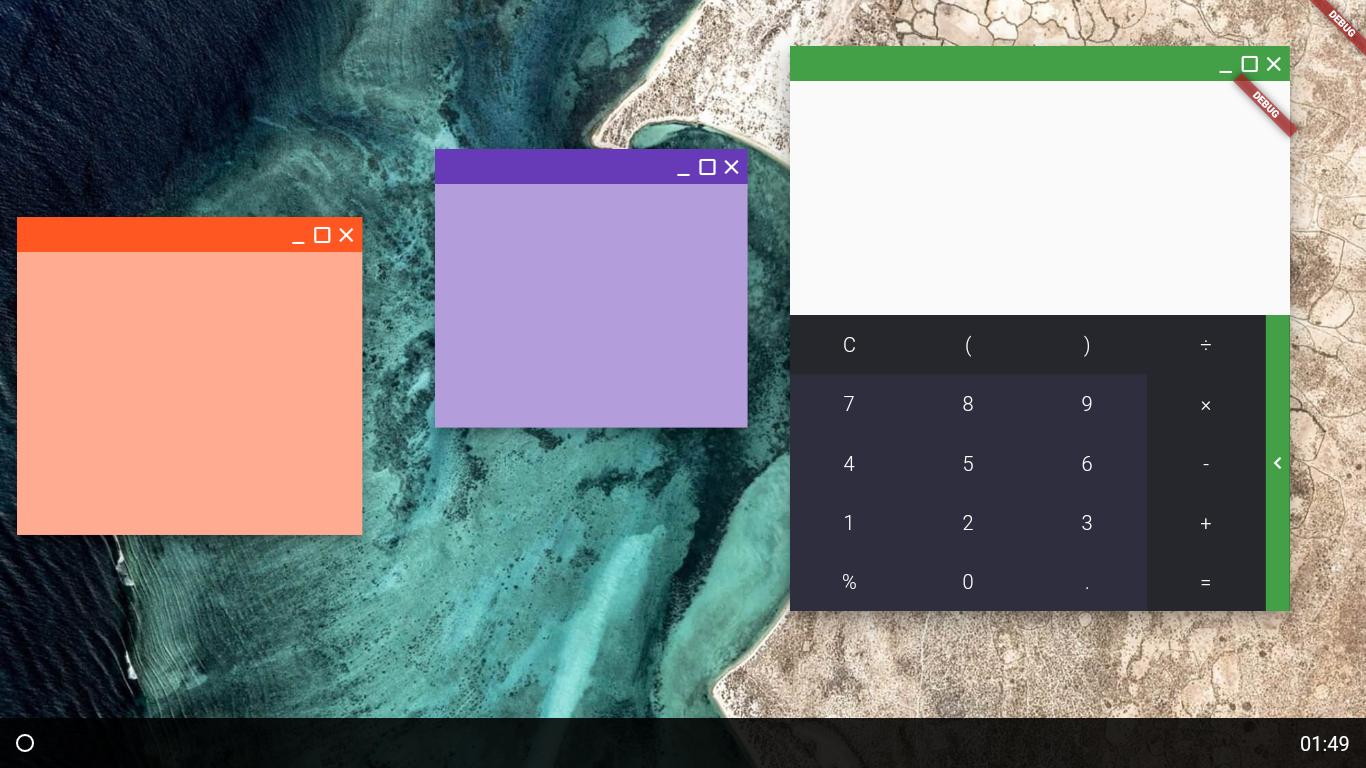
The dahliaOS project aims to create a new system operating that combines GNU / Linux and Fuchsia OS technologies.
Currently, the main effort is focused on creating his own desk called «Pangolin» which is custom written in Dart using the Flutter framework. The shell also supports a tiled window layout mode. The developments of the Capybara project and its own window system, written from scratch, are used as a basis.
The shell can run on systems with the Linux kernel and the Zircon microkernel developed by the Fuchsia project. Several applications are also being developed for distribution, most of which are written in Dart and Flutter.
For example, the project develops a file manager, a configurator, a text editor, a terminal emulator, an application for managing virtual machines and containers, a media player, and an application catalog.

To run third-party programs in the Pangolin environment, there is integrated support for insulated containers in which you can run any non-dahliaOS related application.
For systems with UEFI, a system recovery application is provided, which allows, in case of system problems, to automatically download a new dahliaOS image and boot from it.
The interesting thing about dahliaOS is that keeps things light by including only the apps you need, and you can add all your favorites from other operating systems using the Containers app. dahliaOS also provides an app store for native third-party Flutter apps.

In addition, the base distribution of dahliaOS are based on the Linux kernel and the typical GNU system environment. In parallel, builds based on the Zircon microkernel and the Fuchsia OS environment are being developed, which are available for Raspberry Pi 4, msm8917 and some other devices.
In addition, dahliaOS provides a fast and stable experience on almost all computers, from a 2004 desktop PC to the latest generation of mobile laptops.
Our dual-core approach allows users with newer (more) hardware to take advantage of the Zircon kernel, while maintaining support for older devices using the Linux kernel.
Regarding compatibility, the system "in theory" works on any type of x86 and x64 hardware, but within the tested hardware it is mentioned that the following are compatible with dahliaOS Zircon:
- Acer - Switch Alpha 12
- Google - Pixelbook
- Intel - Nuc (Next Unit of Computing)
- JetWay - HBJC130F731 Series
- Khadas - vim2
- NXP - iMX8M EVK
- 96boards - HiKey960
And from generic hardware, these devices can run dahliaOS Linux builds as these are compatible with dahliaOS Linux which can run dahliaOS Linux builds with syslinux and compatible with dahliaOS Linux-grub which can run dahlia-OS Linux builds but only with the GRUB bootloader.
- Acer - Travelmate P645-S
- Apple Macbook Air prior to 2017
- Khadas - vim3
- Lenovo - Flex 3 80R3
- Modecom - Freetab 8025
Finally, if you have tested the distribution on a particular computer or on some hardware configuration, you can share the specifications used to run the system on the following link
The developments of the project are written in the Dart language and are distributed under the Apache 2.0 license. If you want to know more about the project, you can check the details on the official website of this or you can also check the system documentation at this link.
Download and get dahliaOS
For those who are interested In order to test the system either by installing it on your computer or on a virtual machine, you should know that the DahliaOS compilations are formed in two versions: one of them is for systems with UEFI (158 MB) and the other is oriented to older systems / virtual machines (115 MB).
dahliaOS provides frequent minor updates and patches, and background updates without interrupting your work, no reboot required.
Finally, it is possible to be able to evaluate the work of the Pangolin shell without installing dahliaOSas it has been prepared a web version (works only in Chrome).
Dear developers, your work is amazing but please stop making distros and focus more on making competitive applications, it is what Linux needs.
AMEN!!!
I think we all agree on that, but we must also take into account that this is part of the benefits of open source and without it we would honestly not have large applications and distributions. An example of each Ubuntu and LibreOffice.
I am going to test it, confident that it is an improved system.
It reminds me a lot of Papyrus OS, a distro that at the time seemed very promising ... But in the end it failed